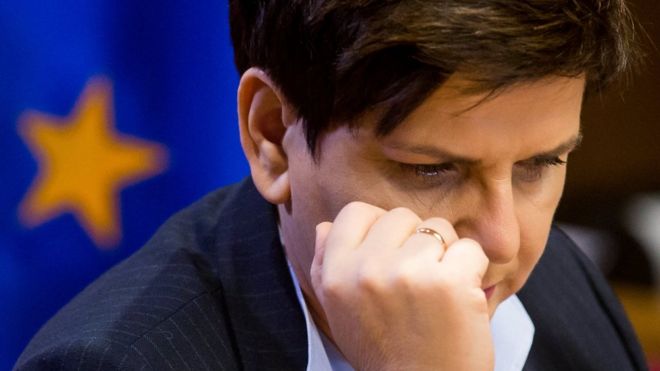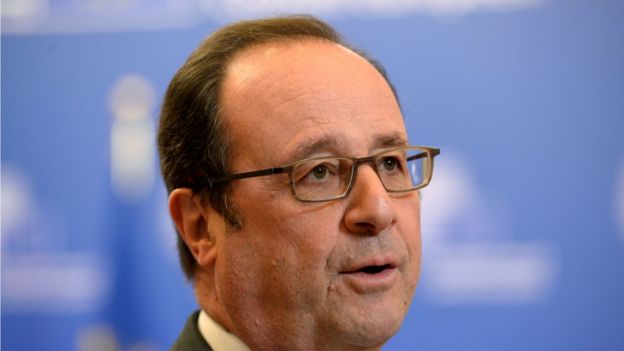EU summit: Poland cries blackmail over subsidies
EU summit: Poland cries blackmail over subsidies
- 28 minutes ago
- Europe
- 49
 EPA
EPA
Polish PM Beata Szydlo has accused the French president of trying to blackmail her country, in a row over Thursday's re-election of EU leader Donald Tusk.
At the end of an EU summit, she said it was unacceptable for Francois Hollande to threaten to stop funds because Poland was "not behaving properly".
Poland had tried but failed to stop Mr Tusk's re-election, and refused to endorse the summit's joint statement.
Ms Szydlo also warned partners Poland would not accept a multi-speed Europe.
She said the EU faced new divisions if stronger nations tried to integrate more among themselves at the expense of weaker ones like Poland and fellow ex-communist countries in the east.
Friday's talks in Brussels focused on the future of the post-Brexit EU.
EU members discussed making a joint declaration that should stress EU unity when they meet in Rome on 25 March.
 AFP
AFP
Poland's failure to endorse the summit joint statement reportedly led to a confrontation over dinner on Thursday evening, with Mr Hollande saying that richer Western nations were helping to pay for Poland's development.
"If someone says 'you're not behaving properly so you won't get the money' - that's unacceptable," Ms Szydlo told a news conference on Friday.
Under a shadow: Analysis by Kevin Connolly, BBC News
 GETTY IMAGES
GETTY IMAGES
When the idea of an EU celebration of the 60th anniversary of the founding Treaty of Rome in the Italian capital was first mooted it must have seemed like a good idea.
Now Brexit casts a long, dark shadow over those proceedings - an organisation that has known nothing but steady expansion is about to lose a member state for the first time.
That is a confidence-sapping thought for an institution which has no firm timetable for planned future expansion in the Balkans.
There is no big idea on offer from the European Commission - just a palette of five vague outlines of how the EU will work in the future. The moment does not feel right for grand visions.
Then there is the Polish government's anger at the re-election of their fellow-countryman Donald Tusk to a top job at the European Council. Poland - a huge beneficiary of EU funding - suddenly feels as though it might take the place in the European awkward squad that the UK is vacating.
Poland is the biggest net recipient of EU funds - in 2015 it got €13.4bn (£11.7bn; $14.2bn) from the EU.
The EU budget will come under huge strain when the UK - one of the biggest net contributors - leaves.
The row came after Poland failed to block the reappointment of Donald Tusk as European Council president - a key strategic role in the EU.
This meant there was no consensus on the joint statement. Controversially, the conclusions - normally an expression of EU unity - came instead from Mr Tusk personally.
A long-running feud between him and Jaroslaw Kaczynski - the nationalist guiding the Polish government - caused the debacle.
Meanwhile there is new momentum behind the idea of EU members moving at different speeds. France, Germany and Italy back it - but Poland is adamantly against.
Poland and its neighbours fear being left behind if their stronger partners integrate in more areas, especially the eurozone.
Brexit 'not the end'
When the 27 EU leaders meet in Rome they will mark 60 years since the launch of the European Economic Community with the Treaty of Rome.
But soon the UK plans to trigger Brexit, the first withdrawal of a member state, a process fraught with risk and uncertainty.
European Commission President Jean-Claude Juncker said: "I don't like Brexit because I would like to be in the same boat as the British.
"The day will come when the British will re-enter the boat, I hope. But Brexit is not the end of the European Union, nor the end of all our developments, nor the end of our continental ambitions."
Comments